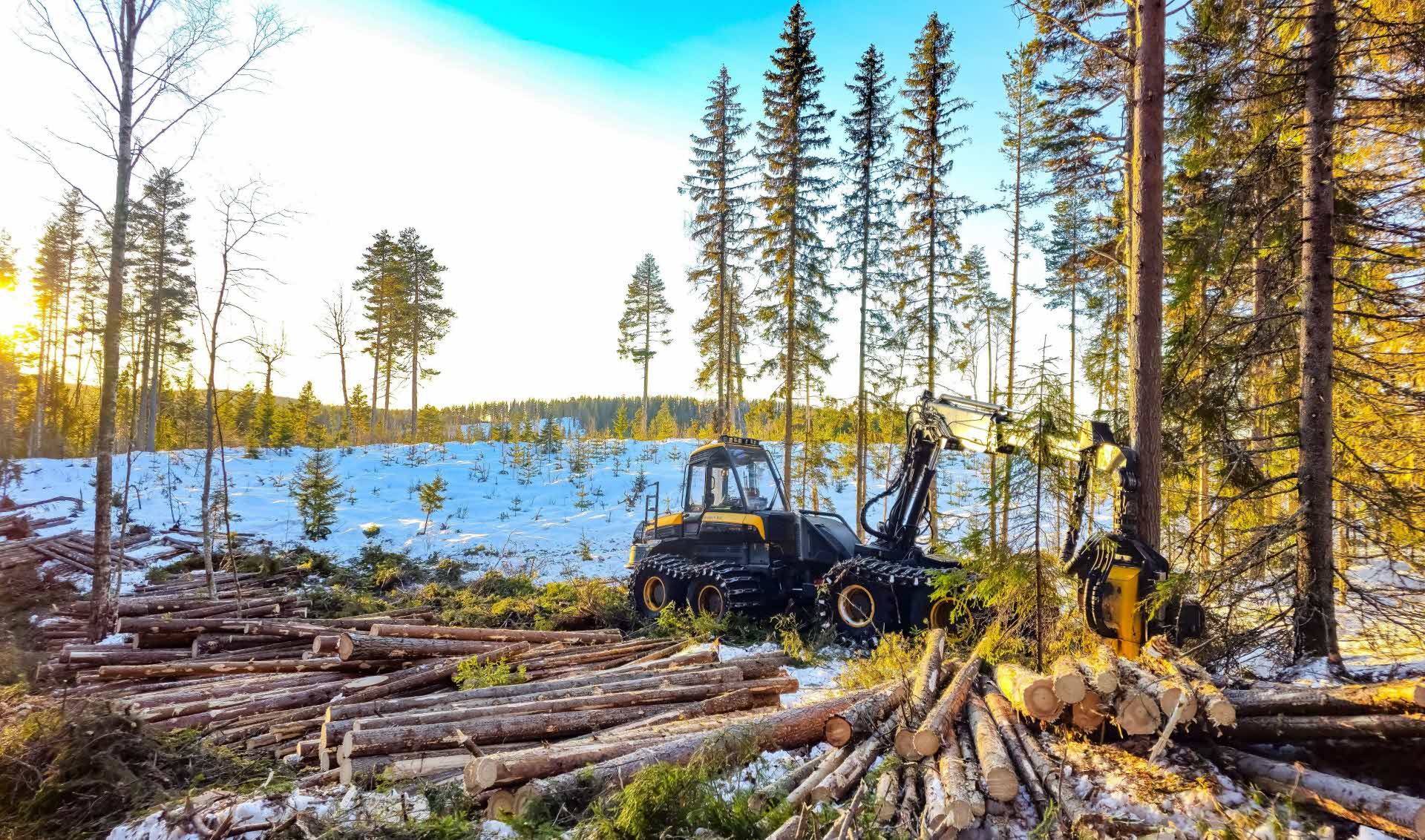
Major initiative for emission-free workplaces in forestry
- News
- Forest
- Sustainability
Creating emission-free workplaces in Sweden’s forestry is a crucial part of the forestry industry's efforts to contribute to the climate transition. SCA, along with parts of the forestry sector, is now collaborating with Komatsu Forest, Luleå University of Technology, the Swedish University of Agricultural Sciences, and the Forestry Technical Cluster to tackle the challenge.
Achieving zero emissions in forestry's often remote and constantly changing workplaces is a significant challenge. It requires a holistic approach that encompasses logistics, forest machinery, and work execution. To meet these challenges, Komatsu Forest, Luleå University of Technology, the Swedish University of Agricultural Sciences, Sveaskog, Holmen, SCA, and the Forestry Technical Cluster have initiated a four-year collaborative project.
"The goal is to jointly explore the technical and market possibilities for emission-free forestry workplaces," says Magnus Bergman, Head of Technology and Digitalization at SCA Skog.
A tough challenge
Forests and the forest industry play a decisive role in the global green transition towards a more sustainable future. At the same time, achieving zero emissions in forestry is a tough challenge, as the work often takes place far from the power grid and established energy infrastructure.
"Electrifying heavy off-road forestry machines is a challenge in itself, but the project will also find out how we can supply energy to the machines. Many things need to fall into place to succeed in this," says Magnus, adding:
"Being able to collaborate across the industry in this way is crucial so we can leverage all the knowledge that exists. We who work in the forest know how things work with us, while other actors have insights into research, technology development, and more. The project has also employed two PhD students, one at Komatsu and one at SLU."
Effective energy solutions
The project aims to identify the most effective energy solutions for the forestry machines of the future. This can pave the way for emission-free forestry workplaces, making the forestry value chain fossil-free and strengthening Sweden's competitiveness and expertise in sustainable forestry.
In Sweden, much research is already focusing on electrification both in forests and during transport.
"This new project is closely linked to an ongoing project investigating the electrification of timber transports, in which SCA also participates. We have two electric timber trucks in operation, one of which is equipped with a crane and collects timber in the forest for further transport to a timber terminal," says Magnus.
More about the project
Collaborating partners: The Forestry Technical Cluster (coordinator), Komatsu Forest, the Swedish University of Agricultural Sciences, Luleå University of Technology, Sveaskog, Holmen and SCA.
Funding from FFI - Strategic Vehicle Research and Innovation: 9 908 800 SEK.